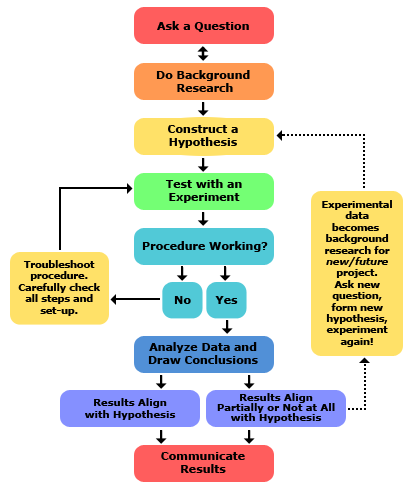What you need to know about failure in science
I know you well, Failure
The first several months of doing research in my undergraduate lab was a whirlwind. I was learning to do new experiments. I was getting results. I was even finding new and interesting results! The adrenaline was high, and I loved it. And then, out of nowhere, the failure hit.
It started with a result not replicating, leading to months of looking for contamination that wasn’t there. Then it was the number of samples being limited, thus limiting how many times we could repeat the experiment. Then, when I did get some kind of result, capturing it under the microscope felt next to impossible.
But I pressed on. My PI often told me: “If it was easy, everyone would do it.” And he was right. What drove me forward was wanting to know the truth, wanting to find the answer to that scientific question that was minuscule in the scope of all of Nature’s knowledge.
I made it out of that lab alive and with a publication. My life moved on to graduate school, where I took a different route. I chose instead to work on bioinformatics, something I had little to no experience with. I did it because I love the challenge, but I also did it because I love learning new things. Yet it made my graduate career start up slowly.
I had to learn how to code. I had to learn all the terminology. My peers were getting real research done because they stayed in their general wheelhouse while I was sputtering and crawling behind them.
I found some interesting results, followed them up, even put in an abstract for a conference. Then, a small error in my code was revealed, and my results were completely destroyed. My findings were incorrect, and I had nothing.
But I’m still alive, and I’m working on another publication about another finding. I’ve moved forward. I’ve learned alot. And maybe most importantly – confession time – I really still love what I’m doing.
I have another confession to make: I hate failing. I hate the feeling. I hate the drama. I hate the self-hate. I hate how often it happens. I don’t mind it every once in a while, but the constant failures that come with science are sometimes overwhelming.
[adinserter block=”2″]
Failure is the norm in science
The truth is, when you’re a scientist, you fail more than you succeed. We don’t talk much about this when we share our latest and greatest with the public. OF COURSE we formed the correct hypothesis the first time because we’re scientists. Even when you read our literature, it makes it sound like we logically moved from one finding to another without ever having hangups in between. But this isn’t how things go.
Let’s go back and take a look at the scientific process.

See that cyan box at the middle? The one that says “Procedure Working”? Yeah, the procedure very often is NOT working. I spend more time just fixing my code than anything else. Optimization takes a lot of time, even more than the background research or the analysis. And this optimization is just one failure after another.
Also, most initial hypotheses are wrong, at least in my experience. There are a vast number of explanations for a given question. The background research is usually very helpful for paring down this list. But then it’s a matter of choosing your pet hypothesis and going with it…or perhaps choosing a couple and finding experiments that can help you differentiate between the two.
As I’ve mentioned in the past, you often can’t answer a scientific question with one experiment. There are dozens of experiments that need to be run, and each experiment needs to be replicated several times (or more depending on the experiment). And whole experiments can fail, too, making you feel like a lump of wasted time and energy embodied in bag of organic material.
[adinserter block=”2″]
We learn from failure
Failure sucks. There’s no nice way to put that. It sucks A LOT. But it’s also a very important part of the process. When we fail, we learn something about how to better optimize our experiments. When we fail, we learn limitations to interpreting our data. When an experiment fails, sometimes it elucidates an interesting mechanism or alternate pathway that we had never thought of. Failure helps us limit that list of possible explanations for our scientific question. It’s important.
Failure also helps us to stay humble, it helps keep in perspective that there is more that we DON’T know than we do. And, for better or for worse, it helps us find our personal limits.
So you’re saying failure is good but it also is bad?
Yes, dear reader. I’m saying that science is a world of internal conflict where we both love and hate failure. Maybe not love. Maybe it’s more like understand the importance of. But it’s still an internal conflict.
How should we deal with these facts of life? Well, I have a few opinions on this.
I think we need to talk about this a lot more. It’s okay to be frustrated when you fail, but I see many of my graduate school peers using bad habits as a coping mechanism. From alcohol use to extreme overwork, we are taught “publish or perish” early on, yet how often do we hear about taking time off to relax or how to deal with stress? There’s a workshop that runs once or twice a year at my university, but I found it on my own. It wasn’t discussed by my program much if at all. Yet, as I’ve mentioned, it’s integral to our success as scientists. I think that by talking about it more, we can foster scientists who understand what failure means for them and are able to see that success can be achieved.
And, I’m sure I’m not the first to say this, we have to move toward a community that presents negative results. We need to fight sensationalized science and focus on getting good science in front of scientists who can validate it. Journals should accept negative results, and we should all foster an environment where this is not looked down upon. It’s fine if the general public only hears about the positive results, but I think it’s ridiculous that I don’t hear about negative results in my field that would save me a lot of time or challenge my current view of the field.
[adinserter block=”2″]
Let’s talk about failure
Let’s celebrate when we get negative results. Let’s talk openly about our failures and learn from each other. Let’s judge each other not just on our successes, but also our ability to persevere in the face of failure.
Together, our failures push the scientific field forward as much as our successes. So let’s keep succeeding, but let’s also keep failing.
What is your most recent failure? How do you deal with disappointment and failure? How do you react when others tell you about their failures? Let me know in the comments below.
Thank you to Teal Brechtal for the idea and inspiration for this post.
If you like these posts, please consider signing up for my mailing list below. I will only e-mail you to let you know of new posts. Otherwise, you can follow my crazy life journey on Twitter, where I also post when I update.





